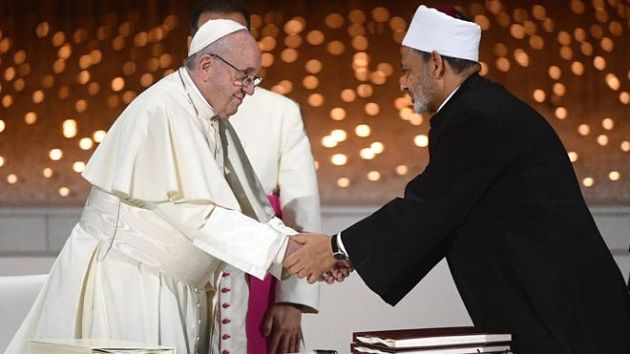At the end of last week a number of media, including Russian-language ones, published the conclusions of a report according to which Christians are currently the most persecuted religious community in the world. It is important to note an important procedural nuance – the report, although commissioned by the British Foreign Office, was prepared under the direction of a person who cannot be called an impartial researcher. This is Truro Philip Mountstiven, who is not only an Anglican bishop, but also the chief missionary of that church. In other words, the task of highlighting the situation of Christians in the modern world was initially entrusted not to a human rights advocate, but to a Christian missionary, which could not help but affect the nature of his conclusions.
But before we turn to them, let us note that we do not in any way deny that truly religious Christians face a number of serious problems in the modern world. Whether it be attacks by fanatics, not only those who hide behind Islam, but also Hindu or Buddhist in certain Asian countries; persecution by totalitarian atheist regimes like China’s; or harassment in post-Christian countries in the form of attacks on traditional family values, gender relations, and so on.
These problems can and should be discussed, of course. But in this case, the obvious one-sidedness of their presentation and the conclusions drawn from it is surprising. Let’s look at some examples.
To illustrate the thesis of persecution of Christians, especially by Muslims, it is written that Christians today make up 1.5% of the population of Palestine, and in Iraq there are only 120,000 people left, compared to 1.5 million in 2003. However, anyone who is interested in the situation in Palestine knows that it has practically turned into a large concentration camp, whose inhabitants are restricted in basic rights such as access to drinking water and electricity, security, freedom of movement, property (which is constantly confiscated for Jewish settlements), not to mention the lack of prospects. It is natural that Christians who have the opportunity to settle in neighboring Lebanon or even in Israel leave such a concentration camp, because only the calls of Islamic scholars not to leave this land keep the Muslims who remain there. The same applies to Iraq, where, according to the British medical journal The Lancet, the victims of the invasion by Western forces amounted to about 650,000 civilians as of 2006. And although other studies give more modest figures, it must be understood that the invasion itself was only the beginning of this slaughter, provoking an inter-communal massacre that did not exist in Iraq before. Of course, today its victims are attributed exclusively to ISIS*, whose crimes cannot be denied, but it is not customary to talk about the crimes of Shiite formations against the Sunni population, or about the civilian victims of coalition actions. Let us recall that during the storming of Mosul alone, which was reduced to rubble, some 40,000 people may have died.
It is also unclear on what basis it is concluded that the majority of those persecuted for religious reasons in the modern world are Christians. If the formal identity of the population of countries is assessed according to religious affiliation, it is quite obvious that, quantitatively, many more Muslims have been killed, displaced, and maimed in various wars in recent years than Christians. Speaking of religious persecution, around the same time that the Truro Bishop’s report was released, U.S. Secretary of State Mike Pompeo stated that up to 3 million Muslims may be held in Chinese re-education camps. Is anything similar happening to Christians today?
Furthermore, a number of cases of persecution of Christians in Muslim countries mentioned in the bishop’s report may give the false impression that only Christians are persecuted by Muslims because of their religion. In this light, cases of persecution of Christian groups and their followers in countries such as Turkmenistan and Uzbekistan are considered, although the same thing is happening there with Islamic groups and religiously observant Muslims, about which we write regularly.
So, to reiterate, we in no way deny the problems Christians face in the modern world. And it is worth noting that under the rule of Muslim rulers, not only Christians lived for centuries in the places from which they are now fleeing – along with Muslims – from war and destruction, but also Jews who found refuge there after being expelled from Christian Spain.
However, it would be desirable that the comparison of the problems of the Christians with the problems of other religious communities, including the Muslim one, be done objectively and not as it was done in the report under the leadership of the chief Christian missionary of England.
* banned in Russia

